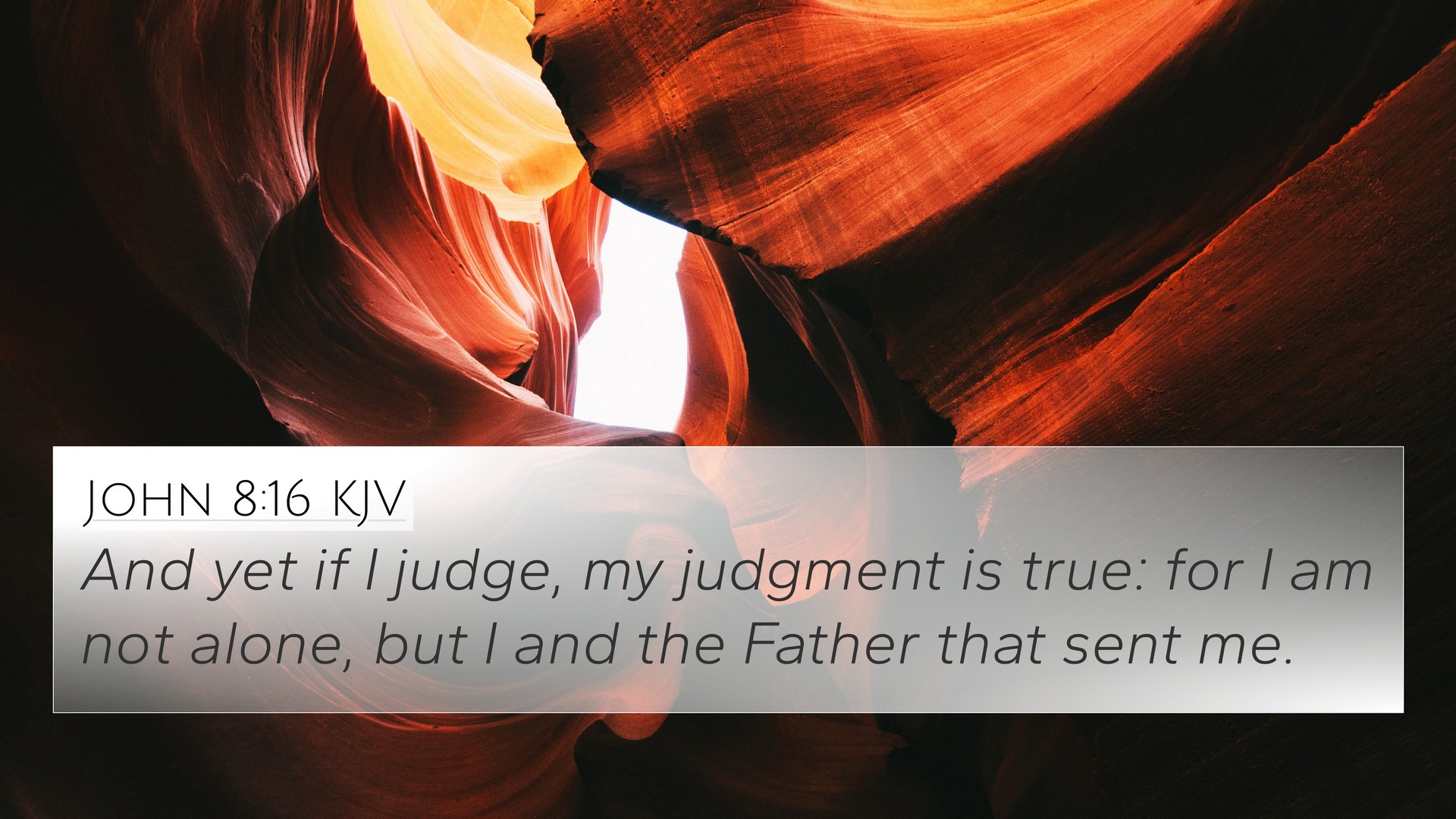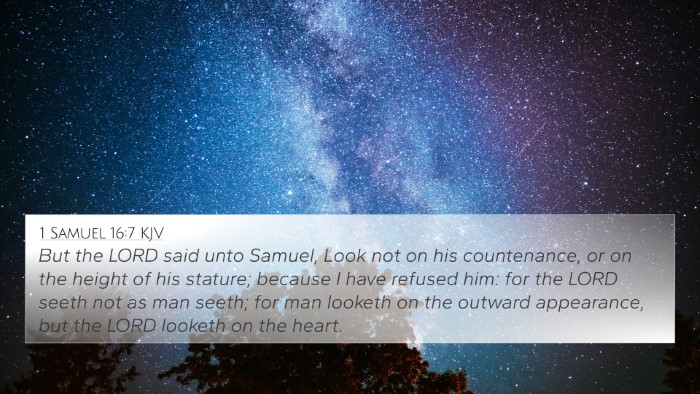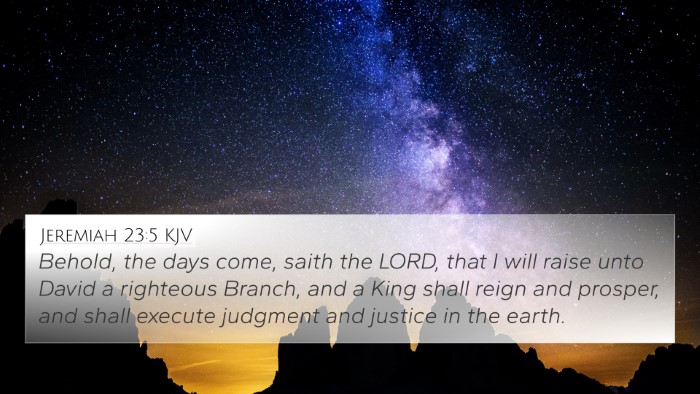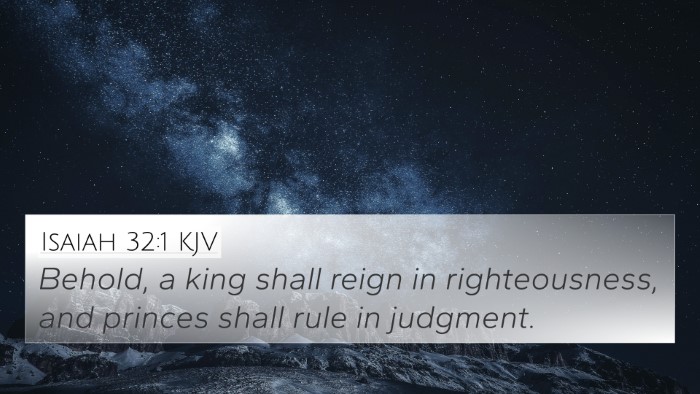Understanding John 8:16
John 8:16 states: "And yet if I judge, my judgment is true: for I am not alone, but I and the Father that sent me." This verse presents significant insights into the relationship between Jesus and God the Father, and emphasizes the legitimacy of His judgements.
Exegesis of John 8:16
In this passage, Jesus emphasizes the truthfulness of His judgments, highlighting that His actions and words are not made in isolation but are in perfect harmony with the Father’s will. The verse unveils key theological themes regarding divine authority and relational unity within the Godhead.
Thematic Significance
This verse plays a crucial role in understanding Christ's mission and the nature of His divine authority. Here are some insights derived from public domain commentaries:
- Matthew Henry: Henry emphasizes that Christ’s judgment is authoritative because it is aligned with the divine will. The unity between the Father and the Son underlines the credibility of Jesus' authority to judge.
- Albert Barnes: Barnes points out that this duality of judging implies a collaborative effort in the divine mission. The presence of the Father alongside the Son signifies the divine approval and validates the judgments made by Christ.
- Adam Clarke: Clarke elaborates on the notion that the judgment of Jesus is not solitary but confirms the integral relationship He has with the Father, depicting a perfect unity that sheds light on His role in salvation.
Cross-References for John 8:16
Understanding the connections of John 8:16 with other Bible verses enhances our grasp of its context. Here are notable cross-references:
- John 5:30: "I can of mine own self do nothing: as I hear, I judge: and my judgment is just; because I seek not mine own will, but the will of the Father which hath sent me."
- John 10:30: "I and my Father are one."
- John 14:10: "Believest thou not that I am in the Father, and the Father in me? the words that I speak unto you I speak not of myself: but the Father that dwelleth in me, he doeth the works."
- John 3:17: "For God sent not his Son into the world to condemn the world; but that the world through him might be saved."
- Hebrews 1:3: "Who being the brightness of his glory, and the express image of his person, and upholding all things by the word of his power, when he had by himself purged our sins, sat down on the right hand of the Majesty on high;"
- Romans 8:32: "He that spared not his own Son, but delivered him up for us all, how shall he not with him also freely give us all things?"
- Philippians 2:7-8: "But made himself of no reputation, and took upon him the form of a servant, and was made in the likeness of men: And being found in fashion as a man, he humbled himself, and became obedient unto death, even the death of the cross."
Connection Between Bible Verses
The verse illustrates a profound theological connection within the New Testament, deepening our understanding of how the Father and the Son collaborate in the work of redemption. By cross-referencing, one can see the consistent theme of the unity of purpose between Jesus and God.
Scriptural Cross-Referencing
Tools for Bible cross-referencing are essential for delving deeper into the scriptures. A Bible concordance or cross-reference guide can greatly aid in exploring these connections. The thematic Bible verse connections enable believers to find links not only between verses, but also across the entirety of scripture.
Conclusion
In summary, John 8:16 serves as a vital scripture that confirms the authority and truth of Christ’s judgment, supported by strong relational dynamics with the Father. This is further explored through scripts that run parallel with key gospel themes. A thorough study of cross-references not only enriches our understanding but also enhances our biblical literacy by identifying connections between Bible verses.
Further Study Suggestions
If you wish to explore further Bible verses related to John 8:16, consider engaging with biblical commentary and theological texts. This will help you in:
- Identifying connections between Old and New Testament teachings.
- Understanding links between prophecies and their fulfillments in the New Testament.
- Appreciating the comparative analysis of Pauline epistles and their themes.

















